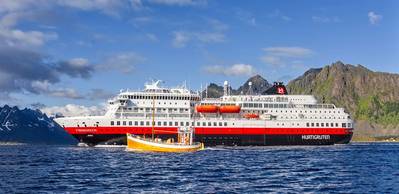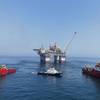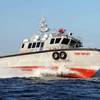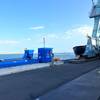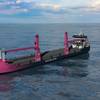Wärtsilä to Support Hurtigruten’s Green Push
The technology group Wärtsilä will supply a broad scope of solutions that will support Hurtigruten, the world’s largest expedition cruise operator, in its push for greener and more sustainable shipping.
Hurtigruten is converting an additional three vessels to become premium, hybrid powered expedition cruise ships. The order with Wärtsilä was placed in Q2 2019 and covers the ‘MS Finnmarken’, the first of the three vessels to be upgraded. Following the conversion project, the 140 metre, 530 guest MS Finnmarken will be renamed the MS Otto Sverdrup.
The scope includes upgrading the ship’s Wärtsilä engines for selective catalytic reduction (SCR) technology to restrict emissions of nitrogen oxides (NOx). Four Wärtsilä Nitrogen Oxide Reducer (NOR) systems will be installed for this conversion. Wärtsilä will also deliver two Energopac systems. The integrated propeller and rudder design of the Wärtsilä Energopac utilises advanced hydrodynamic technology to optimise propulsion efficiency. This enables effective savings in fuel, costs, and emissions. The ship will also have the capability to operate on battery power to further lessen its environmental footprint.
“We have enjoyed a good customer relationship with Hurtigruten for many years, and we are pleased and honoured to have been selected to supply our sustainable solutions to a company that is committed to protecting the environment. The fact that we could deliver Tier III certificates for the total installation was a significant factor in the award of this contract,” says Cato Esperø, Head of Sales, Service Unit Nordics and Baltics, Wärtsilä Marine.
“At Hurtigruten, the push for sustainable solutions and introduction of green technology is the core of everything we do. We operate in some of the most spectacular areas of the world. This comes with a responsibility,” says Daniel Skjeldam, CEO of Hurtigruten.
The Wärtsilä equipment is scheduled for delivery in December of this year. Hurtigruten has announced that all new additions to its fleet, as well as its existing vessels, will be made compliant with the IMO’s Tier III regulations.



